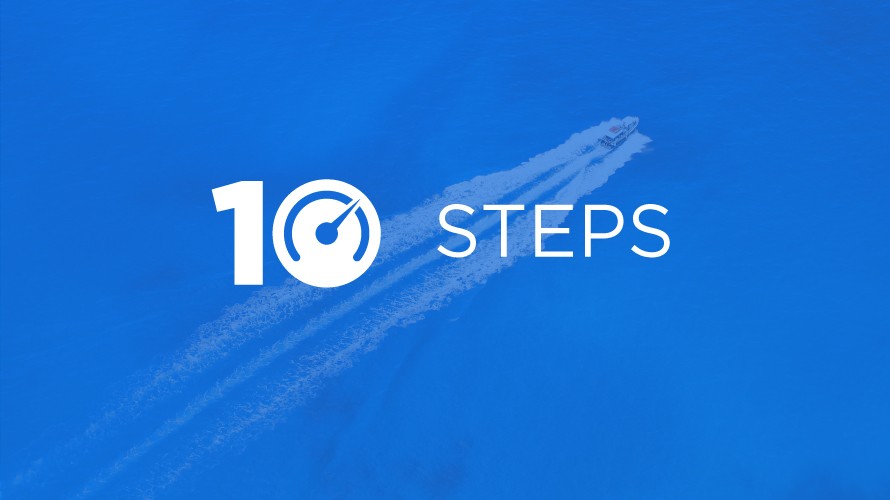Web Development | How to Optimize Your Website
According to the latest news, search engines, such as Google, Bing, Yahoo and others have started to consider behavioral factors for ranking sites in general search results. Due to this fact, many web developers pose a question — what is necessary for us to do now (how to optimize the site) to promote the site in the search results?

If we are not talking about improvement of user experience factors of the site, there are several key factors that web developers have to work on:
- Сlarity of site code (description of styles in .css file, absence of out-of-date structures and inline code)
- Absence of blocks hiding content from the user (for example, any popup banner leads to lowering your site in search results)
- Time of page views (directly depends on the content — whether it is read for a long time or quickly browsed through and closed)
- Presence of site version adapted for mobile devices
- Optimization of loading speed

One More Web Development Tip
If you want Google to start considering behavioral factors of your site (and to start ranking your site higher in search delivery) you need to install Google Analytics counter on your site. The counter has a set of options, but in most cases, many analytical indicators are simply not needed for the webmaster.
After the installation of the counter, your site will briefly be lowered in search results ranking while it gathers enough information on different indicators. But, as practice shows, the site starts to take higher positions in search results in a shorter period of time.

Web Development | Increase Site Loading Speed
If points 1-4 are respected, there isn't much left to do - all you need is to decrease the page loading times. This is a task for a web developer. To start cutting time of page loading, you have to make the following edits based on the tips below:
- Look up your site using the special service by Google and follow the recommendations it gives.
- You need to optimize the images available on the site. It is necessary to always use images which fit by size. Uploading a huge picture for a user each time is bad style. Furthermore, do not store pictures which do not demand high resolution in PNG format. Use JPG format for this purpose instead — it allows for the improvement of page loading time dramatically.
- Enable caching. It can be done by sending part of queries to your server to CDN servers with static content, which is duplicated depending on the location of the user. The most outstanding and convenient representative is cloudflare.com.
- Limit all of the available code — HTML, js, CSS. All these files contain spaces and line breaks which increase the size of files. Each kilobyte matters for you at this stage.
- Combine all duplicated files: store images (icons, user interface) in a single sprite. If you load several js or CSS files, combine them in one.
- Locate CSS files at the top of the page. It is necessary for gradual page rendering, which serves as a good indicator of a page's correct loading.
- Locate javascript at the end of the page instead of the header. As a result, page loading and rendering won't stop.
- Good web developers use several subdomains for static files. Modern browsers can load the information in parallel from different sources. But for one source there is a restriction from 1 to 8 resources loaded simultaneously. Make subdomains and place the same static files in them, and refer to different subdomains in the page code. This will allow you to load resources faster.
- Use a browser cache. This is a server setting that tells the user browser how long a certain file received from the server will be relevant. For example, the server can transfer to the client a style.css file which will be relevant for 20 days. Then the user browser would know that in the next 20 days it won't be necessary to request the file from the server again and your site loading speed will increase.
- Use Gzip compression for sending queries. It is very useful to compress large data pieces before sending (modern browsers use built-in decompressor) at the server side of your site. Use compression for the speed increase of page loading. It is possible to enable it in your server options.

Artyom Lisovsky, our SEO Specialist:
"The tips described above have helped us and our clients to increase the site traffic by 10-221 % due to site promotion in search results. If you have any questions, or cannot find any settings, or do not know how to deal with them, contact our experts for help. We will be glad to help you with the promotion of your site!"



Comments
Fast loading speed is one of the key elements of a successful website. If your website takes too long to load you are losing visitors and potential customers every day. The steps described in this article seem simple and easy to follow and I think everyone who has a website needs to follow these steps especially if you are a business owner.
Interesting points made in this article. Loading speed expectations are higher nowadays and I know myself that I would close the website and go to the next one if the speed is too slow.
Remember when we were so patient that we'd wait 2 full minutes for a single page to load? Now we get upset if we have to wait 5 seconds! Great article getting in depth with load speed as a predictor of behavior.